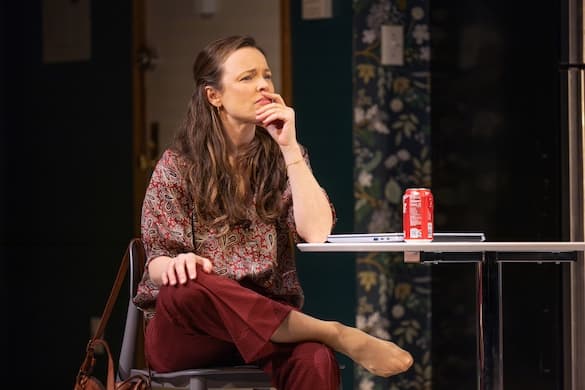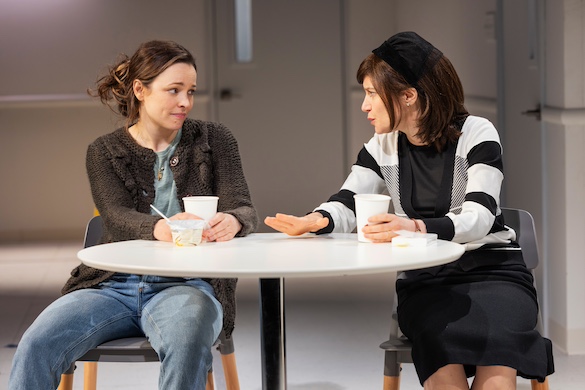Now on Broadway, ‘Mary Jane’ Mesmerizes Even With Subject Matter Than Can Be Difficult To Handle
Amy Herzog captures, with dialogue that feels bracingly, fearlessly authentic — and that is often very funny besides — how powerful love can be in the face of pain and loss and, just as significantly, the limits of that power.

When Amy Herzog’s “Mary Jane” had its premiere off-Broadway in 2017, I found it at once mesmerizing and nearly unbearable. I was happily married and the mother of a healthy 10-year-old, and the production starred a magnificent Carrie Coon as a single mom whose son — about a third the age my daughter was then — is severely disabled and suffers a series of setbacks as the play progresses.
Ms. Herzog and her husband, the director Sam Gold, are themselves the parents of two daughters; the elder was diagnosed with a rare muscular disorder and died last year, at 11. According to a publicist for a new staging of the play, which marks its Broadway premiere, there have not been extensive revisions.
“Mary Jane” nonetheless remains a work of remarkable courage, and far more than that: Ms. Herzog captures, with dialogue that feels bracingly, fearlessly authentic — and that is often very funny besides — how powerful love can be in the face of pain and loss and, just as significantly, the limits of that power.
Under Anne Kauffman’s vigorous, compassionate direction, the screen star Rachel McAdams steps into the title role, and acquits herself nicely. Where Ms. Coon brought more of a wry quality and a sense of latent, perhaps worn ferocity to Mary Jane, Ms. McAdams plays her very credibly, and movingly, as a fundamentally gentle woman who is overwhelmed by her lot.
And who wouldn’t be? Abandoned by her partner when he discovered just how dire their child’s situation was, Mary Jane, who had wanted to be a teacher, now devotes her days and nights to caring and securing care for Alex — we never see or hear the boy, who cannot speak as the result of a paralyzed vocal cord, one of his lesser problems — while struggling to hold on to the tedious job that affords her health insurance.

The one-act play opens in Mary Jane’s apartment, designed by Lael Jellinek to evoke cramped functionality, with the foldout sofa where our protagonist works and, occasionally, sleeps all but spilling over into a tiny kitchen. This portion of the set will eventually rise to reveal a hospital area that seems as cold and vast as the apartment is cluttered and, in its fashion, comforting.
The other women we meet — the characters are all women, and caretakers, and have had their resilience tested in various ways — are played by four superb actresses, each juggling two parts. The marvelous Brenda Wehle brings gentle depth to a building superintendent and Buddhist chaplain; April Matthis is equally affecting as an empathetic nurse who helps care for Alex at home and a doctor who frustrates and patronizes Mary Jane, saying things like, “Mom, what’s your concern here?” and “I’m sorry this is happening, Mom.”
Lily Santiago is charming as the nurse’s similarly warm-hearted but awkward niece and a beleaguered music therapist. Susan Pourfar appears as two women also mothering disabled children — one of them a pious Jew, whom Mary Jane asks if her faith makes things easier. “Maybe my question is … do you believe you’re suffering for a reason?” she proposes, correcting herself, then realizes that’s not quite what she means either.
At some point during the play’s second half, the portion of the set indicating Mary Jane and Alex’s home disappears from view; I didn’t notice it, to be honest, until my daughter, now 16, pointed it out. I left the theater full of gratitude, both for my own blessings and for the beauty and generosity that make “Mary Jane” such a difficult and life-affirming work.

